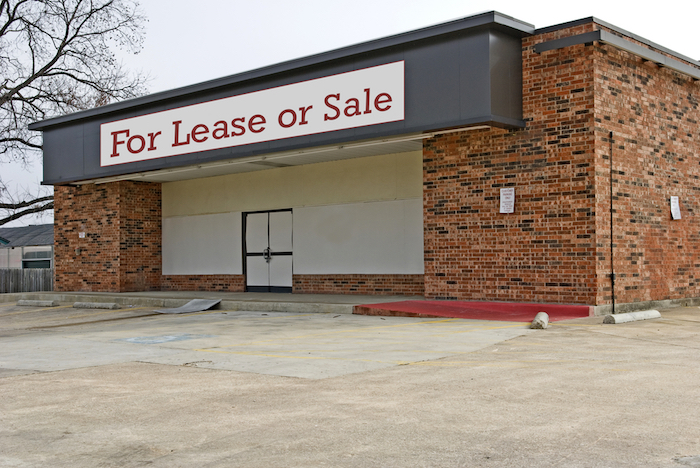Chapter 11 Watch: BHS Goes Out Of Style, Ralph Lauren Shutters Stores

If the wisdom of a retail age before the internet is to be believed, summer is the season when consumers can’t help but get into their cars and head out on the roads to splurge in whatever way strikes their fancy. While there’s probably less truth to that belief now that eCommerce has made shopping from home a year-round activity, a handful of retailers — like those that made this week’s Chapter 11 Watch — have to be hoping that higher temperatures and sunnier days do at least a little something for their bottom lines.
Bankruptcies
It was a slow week for retail death rattles on one side of the Atlantic as a big swath of the sector is still dealing with the developing fallout from Sports Authority’s precipitous demise, but much like the jet stream that carries storms from North America to Europe, it seems as if retail troubles in the U.S. have been picked up and deposited on the shoulders of brands in Merry Old England.
After a lengthy period stuck in administration, the U.K.’s equivalent of Chapter 11 protections, department store chain BHS has announced that its failure to locate a qualified buyer for its troubled assets leaves it one way out: liquidation. Not only will the brand’s remaining stores and stock be chopped up and sold off to make good on debts to suppliers-turned-creditors, but as many as 8,000 in-store employees will soon find themselves out of work — plus an additional 3,000 workers who weren’t BHS employees but relied on the retailer’s operations for their livings.
More troubling, said Philip Duffy, joint administrator of the BHS bid, was the market forces that seemed to push BHS toward its inevitable liquidated fate.
“The British High Street is changing, and in these turbulent times for retailers, BHS has fallen as another victim of the seismic shifts we are seeing,” Duffy said. “The tireless work and goodwill of the existing management team and employees of BHS, with the support of my team, were not enough to change the fortunes of the company.”
It’s sure to be a bitter pill to swallow — much more so than anything served up in a London pub.
Store Closures
BHS may have the indignity of making the biggest splash on the store closure front over the past week, but it wasn’t the only one to shutter once-thriving locations. While BHS’ decision was made out of financial necessity, though, Ralph Lauren‘s choice to close 50 high-end shops is more of a course correction than a last-gasp effort.
Constituting about 10 percent of Ralph Lauren’s brick-and-mortar footprint, CEO Stefan Larsson told The Wall Street Journal that these high-margin locations weren’t producing for what they cost to keep, and along with corporate restructuring that could have about 8 percent of full-time employees shown the door, Larsson hopes the moves are enough to help its core brands — Ralph Lauren, Polo and Lauren — regain the prominence they once enjoyed.
“Our performance has been disappointing over the last three years, and it doesn’t match the strength of the brand,” Larsson said.
Only time will tell if fewer physical store fronts will help the company that’s battling against nimbler fast-fashion merchants and the ever-growing spate of online boutiques that won’t ever have to pay for or close a store in their inanimate lives.
Layoffs
In relation to the thousands potentially at risk of losing their jobs in the BHS meltdown and the Ralph Lauren shakeup, Keurig and Amazon are not kicking near that many employees to the curb. However, the small number they did show the door last week led to some interesting insights.
First, Keurig’s decision to discontinue production of its cold-brewing soda machine — aptly named Kold — is expected to land approximately 100 employees in its Vermont-based corporate headquarters out of work. The move comes just a few short months after the Kold machine launched in Sept. 2015, and at $369.99 a pop — pun intended, though the soda K-Cups required for the machine also cost more than $1 a piece — the cumbersome brewing appliance never gained the traction necessary to make itself a viable product.
Amazon also took some hard looks at the way it does business, particularly in the method its contractors use to make one-hour and same-day deliveries in urban areas. The Seattle Times reported that Fleetfoot, an Amazon contractor, laid off about 40 bike messengers as word came down from corporate that the eCommerce giant would only be accepting cars as a delivery format moving forward. Citing a desire to have more uniform delivery experiences, Amazon and Fleetfoot nixed pedal-powered couriers in the Emerald City, which could have implications in other cities moving forward.
Fleetfoot did express hope “that a week or two without our services will cause them to reconsider and ask us back,” but Amazon isn’t usually one to rethink the decisions it makes when speedy deliveries hang in the balance.